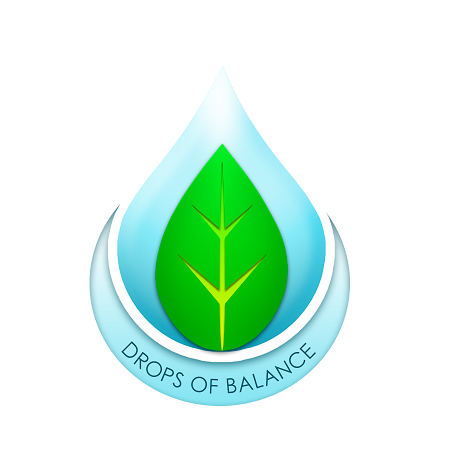
Tap Water vs. Filtered Water for Plants: Which Is Better For Your Organic Garden?
If you've ever stood in your garden with a watering can, wondering whether your tap water is helping or hurting your plants, you're not alone. The water you choose can make the difference between thriving plants and struggling ones: especially in organic gardens where every input matters.
Let's break down the real differences between tap water and filtered water for your plants, so you can make the best choice for your garden's health.
The Tap Water Reality Check
Tap water seems like the obvious choice. It's convenient, it's already flowing from your faucet, and it's essentially free. Plus, municipal water often contains minerals that can actually benefit your plants: think calcium, magnesium, and trace amounts of other nutrients your plants need.
But here's where it gets complicated.
Your local water treatment facility adds chemicals like chlorine and chloramine to kill harmful bacteria and make the water safe for human consumption. While this protects you, these same disinfectants can wreak havoc on the beneficial microorganisms living in your soil: the very bacteria and fungi that help your plants absorb nutrients naturally.
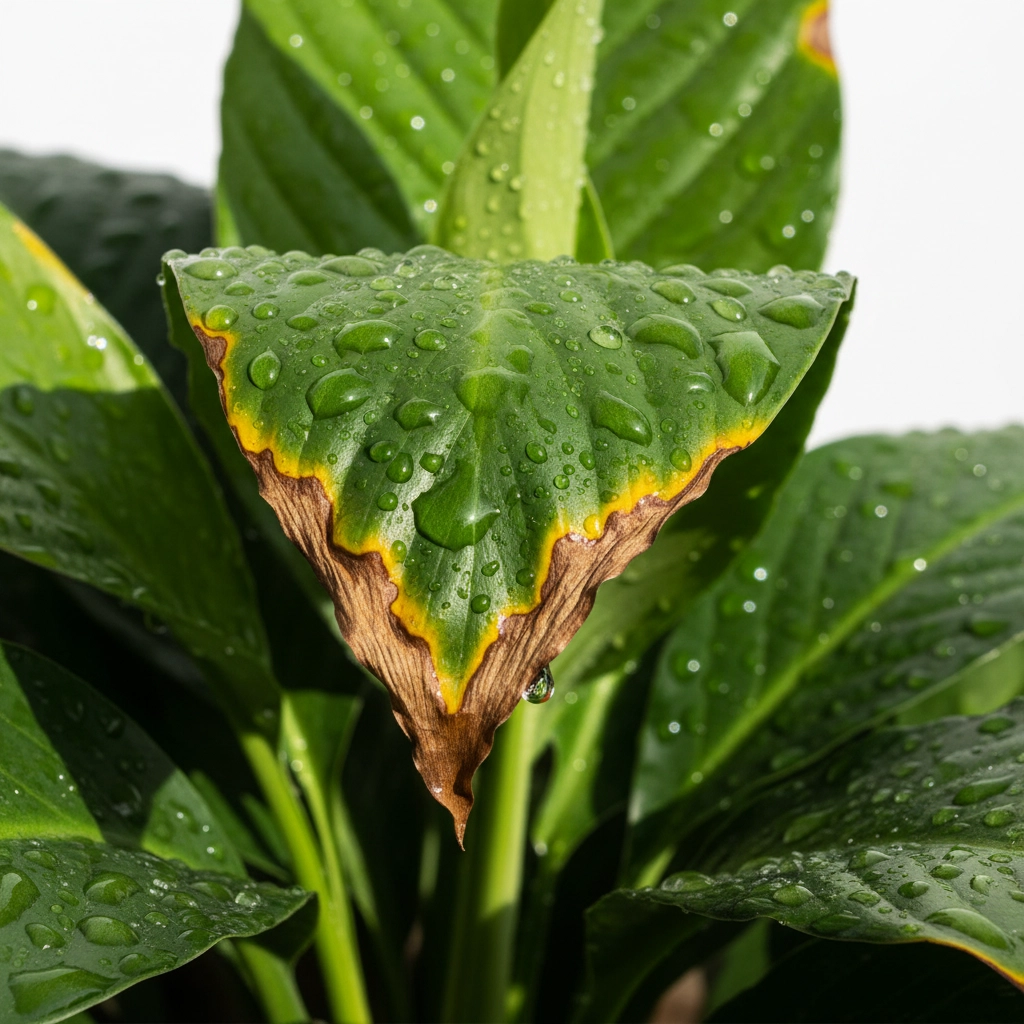
Fluoride presents another challenge. Many municipalities add fluoride to water supplies, but this can cause fluoride toxicity in sensitive plants. You'll recognize the symptoms: brown leaf tips, yellowing foliage, and stunted growth. Container plants are especially vulnerable because fluoride accumulates in potting soil over time, unlike garden beds where it can wash away or bind with soil particles.
The mineral content in tap water varies dramatically depending on your location. Hard water areas might have so much calcium and magnesium that it creates a crusty white buildup on your soil surface. Soft water areas might use sodium-based water softeners, which replace beneficial minerals with sodium: terrible news for plants since sodium interferes with their ability to absorb water properly.
If you're committed to using tap water, here's a simple workaround: let it sit in an open container for 24 hours before using it. This allows chlorine to naturally dissipate into the air. Just remember, this only works for chlorine: chloramine and fluoride will stick around.
Why Filtered Water Changes the Game
Filtered water takes a different approach entirely. Instead of hoping your tap water happens to be plant-friendly, filtration systems actively remove the problematic chemicals while keeping the beneficial minerals your plants actually need.
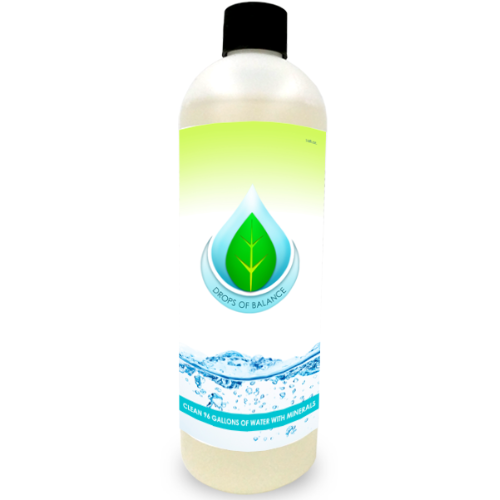
The magic happens in what gets filtered out versus what stays in. A quality water treatment system eliminates chlorine, fluoride, heavy metals, and other contaminants that can stress plants or disrupt soil biology. At the same time, it preserves or even enhances the mineral profile that supports healthy plant growth.
This becomes crucial for organic gardeners who rely on living soil systems. The beneficial bacteria and mycorrhizal fungi that break down organic matter and make nutrients available to plants are sensitive to chemical disruption. Filtered water helps maintain this delicate ecosystem that's essential for organic growing success.
Container gardeners see especially dramatic results with filtered water. Without the buffering capacity of large volumes of garden soil, potted plants are more susceptible to the accumulation of harmful substances. Filtered water prevents this buildup from happening in the first place.
The Science Behind Plant Water Preferences
Plants don't just drink water: they use it as a delivery system for nutrients and as a medium for countless biochemical processes. The quality of that water directly impacts how efficiently these processes work.
When plants uptake water through their roots, they're also absorbing whatever else is dissolved in that water. Beneficial minerals like calcium help with cell wall structure and magnesium supports chlorophyll production. But contaminants like chlorine can oxidize root tissues and fluoride can interfere with enzyme functions.
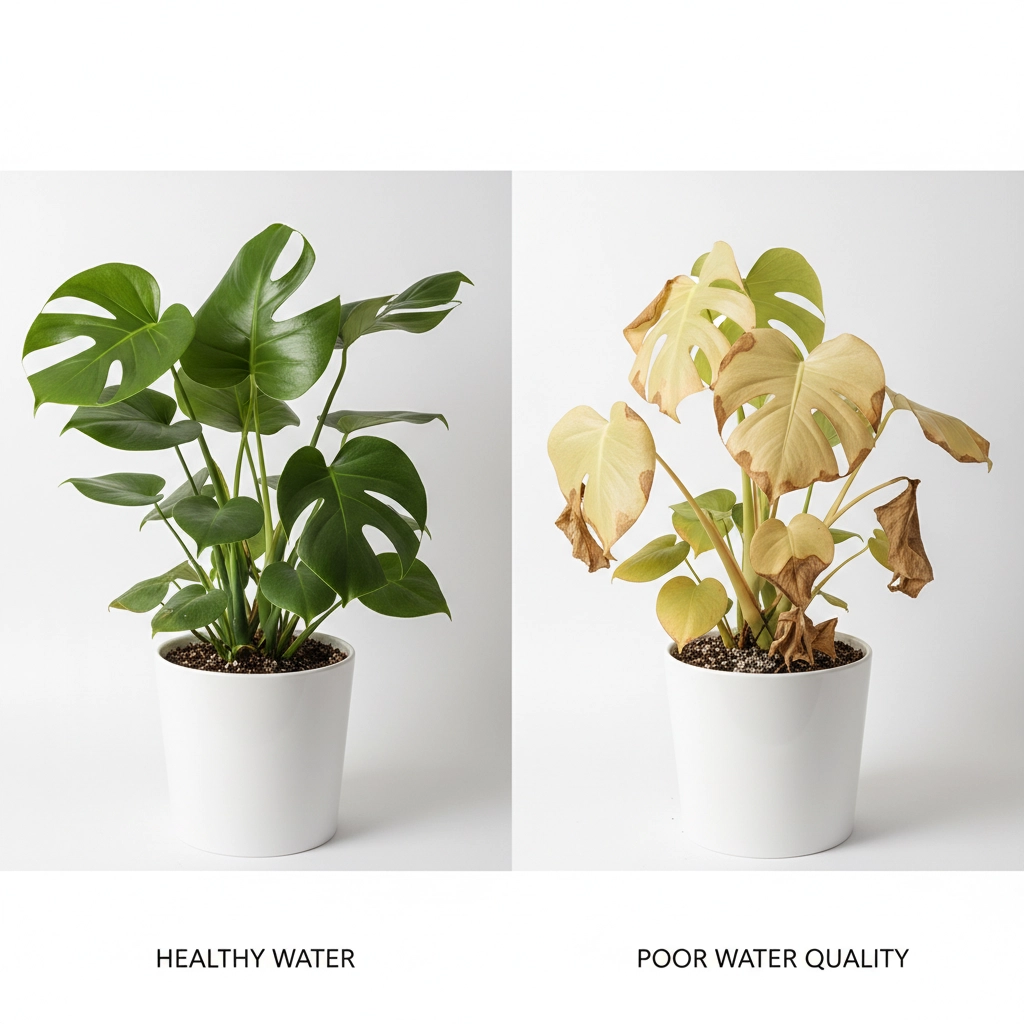
The pH level of your water also matters more than most gardeners realize. Tap water often runs alkaline due to treatment processes, which can lock up nutrients in the soil and make them unavailable to plants even when they're physically present. Filtered water typically maintains a more neutral pH that supports optimal nutrient uptake.
Making the Comparison: Tap vs. Filtered
Here's how these two options stack up across the factors that matter most for plant health:
Cost and Convenience Tap water wins on immediate cost and convenience: it's right there whenever you need it. Filtered water requires an upfront investment in filtration equipment, but the ongoing costs are minimal compared to the potential benefits for plant health.
Mineral Content Both can provide beneficial minerals, but tap water is inconsistent and often comes with unwanted extras. Quality filtration systems remove harmful substances while maintaining or enhancing the mineral profile plants need.
Soil Health Impact This is where filtered water pulls ahead significantly. Tap water's chlorine and other disinfectants can disrupt the soil microbiome that organic gardeners work so hard to build. Filtered water supports these beneficial organisms.
Plant Stress Factors Tap water introduces variables you can't control: seasonal changes in treatment chemicals, varying mineral levels, and potential contamination events. Filtered water provides consistency that reduces plant stress.
When to Choose Which Option
Stick with tap water if:
- Your municipal water is naturally soft with low chlorine levels
- You're growing hardy outdoor plants directly in garden beds
- You're willing to let water sit 24 hours before use
- You're on a tight budget and need to prioritize other garden investments
Switch to filtered water if:
- You're growing sensitive plants or focusing on organic methods
- You garden primarily in containers or raised beds
- Your tap water is heavily chlorinated or fluoridated
- You notice signs of water-related plant stress (tip burn, poor growth, white soil crusts)
- You want consistent, predictable water quality
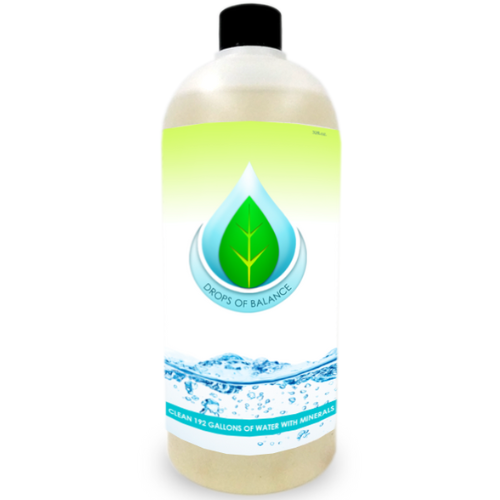
Definitely avoid: Water from sodium-based softening systems: the salt will damage your plants and soil structure. If you have a water softener, make sure to use water from before the softening process for your garden.
Solutions for Every Garden Size
For small-scale gardening, a simple pitcher filter or basic filtration system might be sufficient. These remove the most problematic chemicals while being cost-effective for limited water needs.
Larger gardens benefit from whole-house filtration or dedicated garden water treatment systems. Products like Drops of Balance concentrates offer an interesting middle ground: they treat your existing water supply by neutralizing harmful chemicals and adding beneficial minerals specifically formulated for plant health.
Commercial growers and serious organic gardeners often invest in comprehensive water treatment systems that provide precise control over water quality. The larger concentrate options can treat thousands of gallons, making them cost-effective for extensive growing operations.
The Bottom Line for Your Garden
The choice between tap and filtered water isn't just about what's easier or cheaper: it's about creating the best possible growing conditions for your plants. Filtered water consistently provides the clean, mineral-rich hydration that supports healthy plant growth without the chemical interference that can stress plants and disrupt soil biology.
For organic gardeners especially, water quality represents a foundational element that affects everything else you do. You can have perfect soil, optimal fertilization, and ideal growing conditions, but poor water quality can undermine all of those efforts.
If you're serious about growing healthy plants, filtered water is worth the investment. Your plants will show the difference in stronger growth, better disease resistance, and higher yields. And in organic systems where you're working with natural processes rather than synthetic inputs, that clean water becomes even more critical for maintaining the delicate balance that makes organic growing successful.
The water you choose today shapes the soil ecosystem and plant health you'll have tomorrow. Choose wisely.
